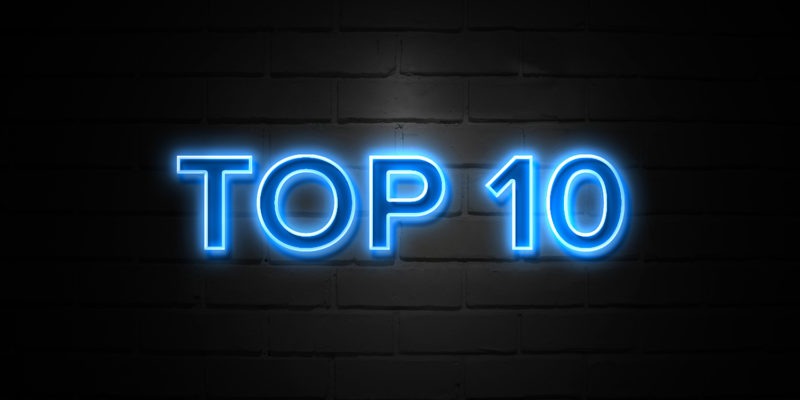Partnering & Drug Development: Top 10 Deals Thus Far in 2023
What are the top 10 drug-development deals (mergers and acquisitions) between the large bio/pharmaceutical companies and smaller companies thus far in 2023? Which smaller companies have been the targets of large companies and in what product areas?
Top 10 deals thus far in 2023
Overall deal value (mergers and acquisitions) totaled $214.3 billion in the bio/pharmaceutical and life science industry in the first half of 2023, according to a recent analysis by PwC and Capital Q, which represented a 3% decline in deal value year over year (as of May 15, 2023, compared to May 15, 2022). The number of deals in the first half of 2023 was 231, down 29% year over year.
What have been the key deals thus far in 2023? The top 10 mergers and acquisitions (closed and announced deals) by the large bio/pharmaceutical companies include: Pfizer’s pending $43-billion acquisition of Seagen; Merck & Co.’s $10.8-billion acquisition of Prometheus Biosciences.; Biogen’s pending $7.3-billion acquisition of Reata Pharmaceuticals; Astellas’ $5.9-billion acquisition of Iveric Bio; Novartis’ pending $3.5-billion acquisition of Chinook Therapeutics; Sanofi’s $2.9-billion acquisition of Provention Bio; Lilly’s pending $2.4-billion acquisition of DICE Therapeutics; GlaxoSmithKline’s $2.0-billion acquisition of Bellus Health; Lilly’s pending $1.9-billion acquisition of Versanis Bio; and Sobi’s $1.7-billion acquisition of CTI Biopharma. Details of those deals are outlined below.
Pfizer’s pending $43-billion acquisition of Seagen. Pfizer’s pending $43-billion acquisition of Seagen, a Bothell, Washington-based bio/pharmaceutical company specializing in antibody-drug conjugates (ADCs) and drugs for oncology, is the largest acquisition announced to date in 2023 in the bio/pharmaceutical company. The deal, announced in March (March 2023), is currently under review by US and European regulatory authorities. The deal is expected to be completed in late 2023 or early 2024, subject to the fulfillment of customary closing conditions, including receipt of required regulatory approvals.
Seagen’s portfolio includes four approved medicines that are indicated across solid tumors and hematologic malignancies, including three ADCs: Adcetris (brentuximab vedotin), Padcev (enfortumab vedotin), and Tivdak (tisotumab vedotin). The company also commercializes Tukysa (tucatinib), which was approved earlier this year (January 2023) for treating certain types of colorectal cancer in combination with trastuzumab. Clinical development programs are ongoing for each of these medicines for potential new tumor types or expanded indications in earlier lines of therapy, with catalysts expected annually through 2027.
The proposed acquisition is expected to enable combination potential across both Seagen’s and Pfizer’s pipelines and to use Pfizer’s protein engineering and medicinal chemistry capabilities to advance Seagen’s ADC technology for potential new target combinations and new biologics. Seagen is also advancing technologies capable of potentially generating multiple investigational new drug applications, including new linker/payload technologies for ADCs and other antibody platforms that directly engage the immune system to destroy tumors, such as bi-specific antibodies.
At the time of the merger announcement in March (March 2023), Seagen said it expects to generate approximately $2.2 billion of revenue in 2023, representing 12% year-over-year growth, from its four in-line medicines, royalties, and collaboration and license agreements. When combining the expected growth trajectories for these medicines with candidates that could emerge from Seagen’s pipeline, subject to clinical trial and regulatory success, Pfizer said at the time of the merger announcement that it believes Seagen could contribute more than $10 billion in risk-adjusted revenues in 2030, with potential significant growth beyond 2030.
Merck & Co.’s $10.8-billion acquisition of Prometheus Biosciences. In June (June 2023), Merck & Co. completed its $10.8-billion acquisition of Prometheus Biosciences, a San Diego, California-based bio/pharmaceutical company. The acquisition was announced in April 2023.
Prometheus is focused on the development of precision medicines for treating immune-mediated diseases and companion diagnostics. Its lead drug candidate is PRA023 (now known as MK-7240), which is being evaluated for various autoimmune conditions that include ulcerative colitis (UC), Crohn’s disease (CD), and systemic sclerosis-associated interstitial lung disease. In December 2022, Prometheus reported results for MK-7240 from a Phase II study for moderate-to-severely active UC and a Phase IIa study for moderate-to-severe CD. The drug is a humanized monoclonal antibody directed to tumor necrosis factor (TNF)-like ligand 1A (TL1A), a target associated with both intestinal inflammation and fibrosis.
Prometheus also has a precision medicine platform, Prometheus360, which combines machine learning-based analytical approaches with a gastrointestinal bioinformatics database to identify therapeutic targets and develop therapeutic candidates to engage those targets.
Biogen’s pending $7.3 billion acquisition of Reata Pharmaceuticals. Late last month (July 2023), Biogen agreed to acquire Reata Pharmaceuticals, a Plano, Texas, bio/pharmaceutical company, for $7.3 billion. Reata specializes in developing small-molecule therapeutics that regulate cellular metabolism and inflammation in neurologic diseases. Its lead commercial asset is Skyclarys (omaveloxolone) for treating Friedreich’s ataxia, a rare inherited disease that causes progressive damage to the nervous system and movement problems. The drug was approved by the US Food and Drug Administration earlier this year (February 2023). The company’s marketing authorization application for omaveloxolone is under review in Europe by the European Medicines Agency. Reata is also developing cemdomespib for treating diabetic neuropathic pain. The deal was approved by the Boards of Directors of both companies and is expected to close in the fourth quarter of 2023.
Astellas’ $5.9-billion acquisition of Iveric Bio. In July (July 2023), Astellas completed its $5.9-billion acquisition of Iveric Bio, a Parsippany, New Jersey-based bio/pharmaceutical company focused on ophthalmology. The acquisition was announced in late April (April 2023).
Iveric Bio’s lead drug candidate is an avacincaptad pegol for treating geographic atrophy, a chronic progressive degeneration of the macula as part of late-stage age-related macular degeneration. The company announced in February 2023 that the US Food and Drug Administration (FDA) accepted the company’s new drug application (NDA) for the drug. The NDA was granted priority review with a Prescription Drug User Fee Act goal date of August 19, 2023.
The acquisition fits one of Astellas’ five areas of therapeutic focus in the company’s growth strategy: developing treatments for vision loss, blindness, and regeneration. The other areas are genetic medicines, immuno-oncology, treatments addressing mitochondrial dysfunction, and targeted protein degradation to address undruggable drugs in various disease areas.
Novartis’ pending $3.5-billion acquisition of Chinook Therapeutics. In June (June 2003), Novartis agreed to acquire Chinook Therapeutics, a Seattle, Washington-based clinical-stage bio/pharmaceutical company, in a deal worth up to $3.5 billion ($3.2 billion upfront and $300 million in milestone payments).
Chinook’s pipeline includes two late-stage drug candidates (atrasentan and zigakibart) to treat immunoglobulin A nephropathy (IgAN), a rare kidney disease that mostly affects young adults.
Atrasentan is an oral drug in Phase III development for IgAN with a pivotal readout expected in the fourth quarter of 2023. Atrasentan is also in early-stage development for other rare kidney diseases. Zigakibart is a subcutaneously administered monoclonal antibody, and a Phase III trial in IgAN is expected to start in the fourth quarter of 2023. The transaction is expected to close in the second half of 2023, subject to customary closing conditions, including approval by Chinook’s stockholders and receipt of regulatory approvals.
Sanofi’s $2.9-billion acquisition of Provention Bio. In April (April 2023), Sanofi completed its $2.9-billion acquisition of Provention Bio, a Red Bank, New Jersey-based bio/pharmaceutical company. Provention Bio is focused on immune-mediated diseases. Its lead product, which was approved by the US Food and Drug Administration in 2022, is Tzield (teplizumab-mzwv) for delaying the onset of Stage 3 Type 1 diabetes (T1D) in adults and pediatric patients aged eight years and older with Stage 2 T1D. Tzield is also in late-stage clinical development for the treatment of pediatric and adolescent patients that are newly diagnosed with clinical T1D (Stage 3). A Phase III trial is currently underway, and top-line results are expected in the second half of 2023. Additional opportunities for the drug include re-dosing and formulation as well as new therapeutic indications.
Lilly’s pending $2.4-billion acquisition of DICE Therapeutics. In June (June 2023), Eli Lilly and Company agreed to acquire DICE Therapeutics, a South San Francisco, California-based bio/pharmaceutical company, for $2.4 billion. DICE has a proprietary technology platform, Delscape, for developing oral therapeutic candidates to treat chronic diseases in immunology. DICE’s lead candidate is DC-806, a small-molecule inhibitor of the pro-inflammatory signaling molecule, IL-17, a drug target for psoriasis and a variety of autoimmune and inflammatory diseases. DICE is also developing oral therapeutic candidates targeting the integrin α4ß7 for the treatment of inflammatory bowel disease.
The transaction is expected to close in the third quarter of 2023, subject to customary closing conditions, including receipt of required antitrust clearance and the tender of a majority of the outstanding shares of DICE’s common stock. Following the successful closing of the tender offer, Lilly will acquire any shares of DICE that are not tendered in the tender offer through a second-step merger at the same consideration as paid in the tender offer.
GlaxoSmithKline’s $2.0-billion acquisition of Bellus Health. In June (June 2023), GSK completed its $2-billion acquisition of Bellus Health, a Laval, Quebec, Canada-based, bio/pharmaceutical company. Bellus’ lead drug candidate is camlipixant, in Phase III development, for the first-line treatment of adult patients with refractory chronic cough, defined as a cough that persists for more than eight weeks despite optimal treatment of any underlying conditions or where there is no identifiable underlying cause.
Lilly’s pending $1.9-billion acquisition of Versanis Bio. In July (July 2023), Eli Lilly and Company agreed to acquire Versanis Bio, a New York-based bio/pharmaceutical company focused on cardiometabolic diseases, in a deal worth up to $1.9 billion. Versanis’ lead asset is bimagrumab, a monoclonal antibody that binds activin Type II A and B receptors to block activin and myostatin signaling. Bimagrumab is currently being assessed in a Phase IIb study alone and in combination with semaglutide in adults who are overweight or obese. Combining incretins with bimagrumab has the potential to further reduce fat mass while preserving muscle mass and may lead to better outcomes for people living with obesity and obesity-related complications, according to information from Lilly.
Sobi’s $1.7-billion acquisition of CTI Biopharma. In June (June 2023), Swedish Orphan Biovitrum (Sobi), a Stockholm, Sweden-based bio/pharmaceutical company developing drugs for rare diseases, completed its $1.7-billion acquisition of CTI BioPharma, a Seattle, Washington-based bio/pharmaceutical company developing drugs for blood-related cancers.
CTI’s lone commercial product is Vonjo (pacritinib), which is FDA-approved for treating intermediate or high-risk primary or secondary myelofibrosis, a rare form of a bone marrow disorder in adult patients who have platelet (blood-clotting cells) levels below 50,000/µL. The drug was granted accelerated approval by the FDA in 2022. CTI has approximately 144 employees and had 2022 revenues of approximately $54 million. CTI is now a wholly owned subsidiary of Sobi.







